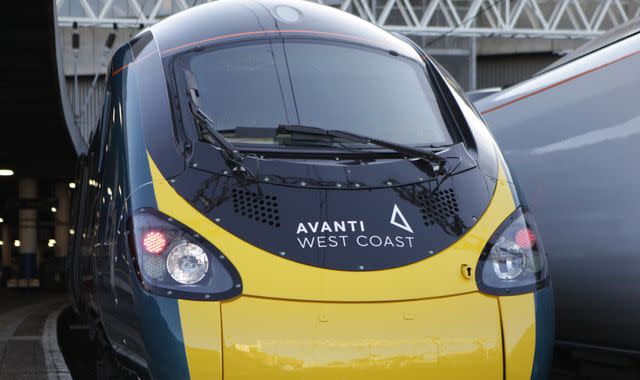Train passengers face weeks of disruption over summer holidays

Train passengers will face weeks of disruption at the height of the school summer holidays as train drivers stage another week-long overtime ban.
Drivers were already refusing to work overtime from Monday 31 July to Saturday 5 August in a long-running dispute over pay, but the ASLEF union has now announced another overtime ban from Monday 7 to Saturday 12 August.
It will affect services across 15 train companies.
Full list of rail and Tube strike dates and services affected
The union said the ban will seriously disrupt services, claiming none of the train companies employ enough drivers.
The ban will affect Avanti West Coast; Chiltern Railways; Cross Country; East Midlands Railway; Greater Anglia; Great Western Railway; GTR Great Northern Thameslink; Island Line; LNER; Northern Trains; Southeastern; Southern/Gatwick Express; South Western Railway main line; TransPennine Express and West Midlands Trains.
It will be the fifth week-long ban on overtime since May.
The latest ban ended on Saturday.
'We don't want to take this action'
Mick Whelan, ASLEF's general secretary, said: "We don't want to take this action - because we don't want people to be inconvenienced - but the train companies, and the government which stands behind them, have forced us into this place because they refuse to sit down and talk to us and have not made a fair and sensible pay offer to train drivers who have not had one for four years - since 2019 - while prices have soared in that time by more than 12%."
A spokesperson for the Rail Delivery Group, said: "ASLEF's leadership continues to disrupt customers' travel plans. They rejected a fair and affordable offer without putting it to their members, which would take average driver base salaries for a four-day week without overtime from £60,000 to nearly £65,000 by the end of 2023 pay awards.
"Train companies will work hard to minimise the impact of the overtime ban at 13 train operating companies between 7 and 12 August that will affect the level of cancellations and the punctuality of some services.
"Customers are advised to plan their journey in advance and check the latest travel information before they travel."
Read more:
Union boss insists rail strikes 'have been a success'
'Sensitive' leaked report reveals train delays set to worsen
The group said the move would affect 13 train companies rather than the 15 mentioned by ASLEF because the union has separated the Island Line and Southern from South Western Railway and Govia Thameslink Railway (GTR) respectively.
The spokesperson added: "We ask ASLEF to recognise the very real financial challenge the industry is facing and work with us to deliver a better, more reliable railway with a strong long-term future."
Members of the Rail, Maritime and Transport (RMT) union staged two strikes last week and will walkout again on Saturday in an increasingly bitter row over pay, jobs and conditions.

 Yahoo News
Yahoo News 
